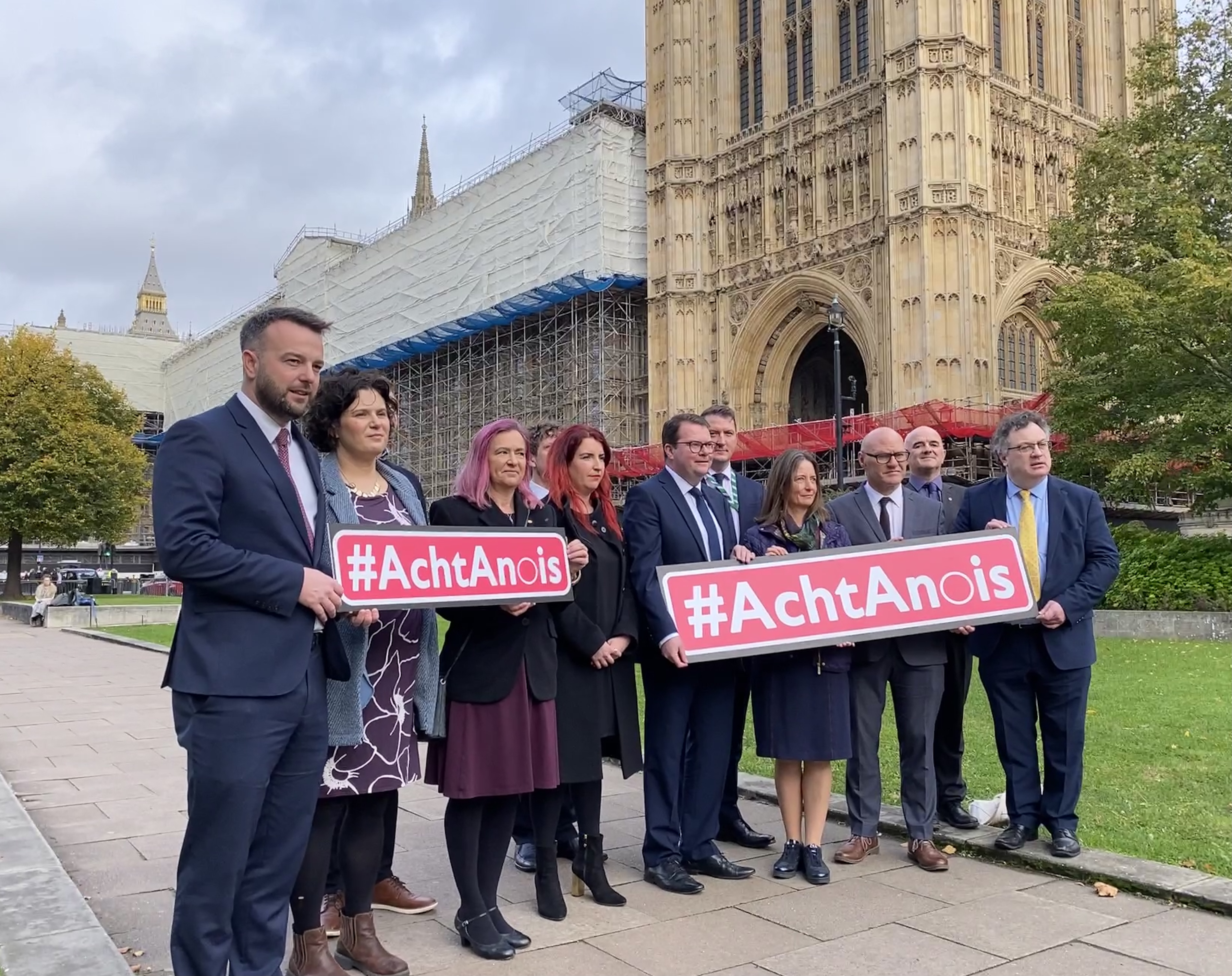WEDNESDAY saw the second reading of the Irish language legislation bill pass through the House of Commons.
The resolution passed with 380 votes to four, allowing the bill to pass to the committee stage.
The bill will allow for the official status of the Irish Language in the North.
During the proceedings the DUP MPs stated that they would be opposing the bill unless amendments were made. The party stated the reasoning for this was that they believed there would be differences of power between the proposed Irish Language Commissioner and Ulster Scots Commissioner.
A culture and identity office would also be created under the new legislation.
MP for South Belfast Claire Hanna spoke as Gaeilge stating that the delay in the legislation was unfortunate but was “better late than never". She reminded the DUP that “these were provisions they had agreed to at New Decade New Approach". She also paid tribute to the work of Irish language campaigners including Linda Ervine for her work in promoting the Irish language among Unionists.
Alliance Deputy Leader and MP Stephen Farry also shared his support for the bill and spoke as Gaeilge for part of his speech. He stated that “the Irish language and Ulster Scots are part of the shared heritage of Northern Ireland. We celebrate that heritage.”
Cuisle Nic Liam, Language Rights Coordinator with Conradh na Gaeilge, said: “The Identity and Language Bill passing its second reading in the House of Commons at Westminster yesterday is another step in the right direction.
“It's worth remembering that the British Government actively put laws, policies and practices in place which attempted to banish the Irish language and its community; the significance of today should not be lost on anyone.
“With that said, it is a source of much regret that the DUP have openly said that they will continue to oppose the bill at committee stage if their amendments are not accepted, despite the fact that they had previously agreed to this legislation in January 2020.
“This strengthens the case for the amendment we have put forward to include a timeframe with the step-in powers of the Secretary of State; every aspect of this legislation is rooted in The Executive Office, effectively working in a DUP veto. We can be sure that they'll have no problem in exercising this power. We will continue to make our case and to work towards strengthening this bill at every step of the process.”








